 WE DIDN’T START THE FIRE
WE DIDN’T START THE FIRE
FROM A TO Z
On September 27, 1989, the iconic song by Billy Joel, We Didn’t Start the Fire hit the airwaves. It was a history lesson set to music. When you first heard the song, did you know or remember all the people places, things and events mentioned in the lyrics? I sure didn’t. Back in 1989 before the internet was something everyone had access to, my boyfriend (now husband) and I headed to the local public library and looked up all the historical references. This month, for the A to Z Challenge, I am writing about that history.
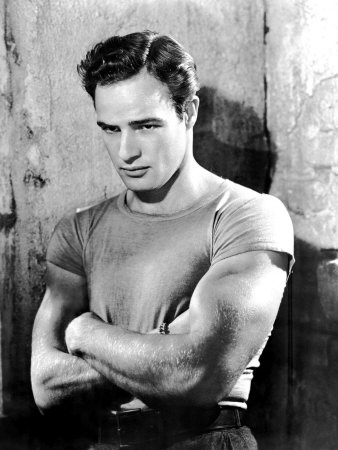
Marlon Brando is nominated for the Academy Award for Best Actor for his role in A Streetcar Named Desire.

Brooklyn’s got a winning team: The Brooklyn Dodgers win the World Series for the only time before their move to Los Angeles.
Brigitte Bardot is a French dancer, model and actress who became an international icon in the 1950s and ’60s. In 1956, the film And God Created Women launched her as an international sex symbol. She retired from acting in the 1970s and devoted her time to animal activism.
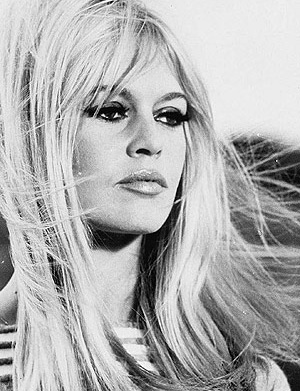
Brigitte Bardot appears in her first mainstream film And God Created Woman and establishes an international reputation as a French “sex kitten”.
Also in 1956, Joel’s lyrics have Budapest, Hungry, the site of the Hungarian Revolution. The Hungarian Revolution of 1956 was a nationwide revolt against the government of the Hungarian People’s Republic and its Soviet-imposed policies, lasting from 23 October until 10 November 1956. It was the first major threat to Soviet control since the USSR’s forces drove out Nazi Germany from its territory at the end of World War II.The revolt began as a student demonstration using a van to broadcast with loadspeakers as thousands marched through central Budapest. A delegation of students entering the radio station to broadcast their demands were detained. When the delegation’s release was demanded by the demonstrators outside, they were fired upon by the State Security Police (ÁVH) from within the building. One student died and was wrapped in a flag and held above the crowd. This was the start of the revolution. As the news spread, disorder and violence erupted throughout the capital.

Magyar: Kossuth Lajos utca a Ferenciek tere felől nézve. 1956. október 25-e délután, “véres-zászlós” tüntetés.
Location: Hungary, Budapest V.
Tags: march, flag, Budapest, revolution
Title: Kossuth Lajos utca a Ferenciek tere felől nézve. 1956. október 25-e délután, \
Date 1956
Source http://www.fortepan.hu/_photo/download/fortepan_40060.jpg
Author FOTO:Fortepan — ID 24652: Nuvola filesystems folder home.svgInkscape.svgInformation icon.svg
Adományozó/Donor : Nagy Gyula.
The revolt spread quickly across Hungary and the government collapsed. Thousands organised into militias, battling the ÁVH and Soviet troops. Pro-Soviet communists and ÁVH members were often executed or imprisoned and former political prisoners were released and armed. Radical impromptu workers’ councils wrested municipal control from the ruling Hungarian Working People’s Party and demanded political changes. A new government formally disbanded the ÁVH, declared its intention to withdraw from the Warsaw Pact, and pledged to re-establish free elections. By the end of October, fighting had almost stopped and a sense of normality began to return.
After announcing a willingness to negotiate a withdrawal of Soviet forces, the Politburo changed its mind and moved to crush the revolution. On 4 November, a large Soviet force invaded Budapest and other regions of the country. The Hungarian resistance continued until 10 November. Over 2,500 Hungarians and 700 Soviet troops were killed in the conflict, and 200,000 Hungarians fled as refugees. Mass arrests and denunciations continued for months thereafter. By January 1957, the new Soviet-installed government had suppressed all public opposition. These Soviet actions, while strengthening control over the Eastern Bloc, alienated many Western Marxists, leading to splits and/or considerable losses of membership for communist parties in capitalist states.
Public discussion about this revolution was suppressed in Hungary for more than 30 years. Since the thaw of the 1980s, it has been a subject of intense study and debate. At the inauguration of the Third Hungarian Republic in 1989, 23 October was declared a national holiday.
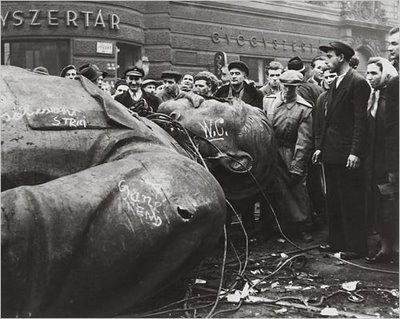
Budapest is the capital city of Hungary and site of the 1956 Hungarian Revolution.

Bridge on the River Kwai is released as a film adaptation of the 1954 novel and receives seven Academy Awards, including Best Picture

Buddy Holly dies in a plane crash on February 3 with Ritchie Valens and The Big Bopper
Ben-Hur is a 1959 American epic historical drama film, directed by William Wyler, produced by Sam Zimbalist for Metro-Goldwyn-Mayer and starring Charlton Heston as the title character. A remake of the 1925 silent film with the same name, Ben-Hur was adapted from Lew Wallace’s 1880 novel Ben-Hur: A Tale of the Christ. The screenplay is credited to Karl Tunberg but includes contributions from Maxwell Anderson, S. N. Behrman, Gore Vidal, and Christopher Fry. Following a $14.7 million marketing effort, Ben-Hur premiered at Loew’s State Theatre in New York City on November 18, 1959. It was the fastest-grossing as well as the highest-grossing film of 1959, in the process becoming the second-highest-grossing film in history at the time after Gone with the Wind. It won a record 11 Academy Awards, including Best Picture, Best Director (Wyler), Best Actor in a Leading Role (Heston), Best Actor in a Supporting Role (Griffith), and Best Cinematography – Color (Surtees), an accomplishment that was not equaled until Titanic in 1997 and then again by The Lord of the Rings: The Return of the King in 2003. Ben-Hur also won three Golden Globe Awards, including Best Motion Picture – Drama, Best Director and Best Supporting Actor – Motion Picture for Stephen Boyd. Today, Ben-Hur is widely considered to be one of the greatest films ever made, and in 1998 the American Film Institute ranked it the 72nd best American film and the 2nd best American epic film in the AFI’s 10 Top 10. In 2004, the National Film Preservation Board selected Ben-Hur for preservation by the National Film Registry of the Library of Congress for being a “culturally, historically, or aesthetically significant” motion picture.
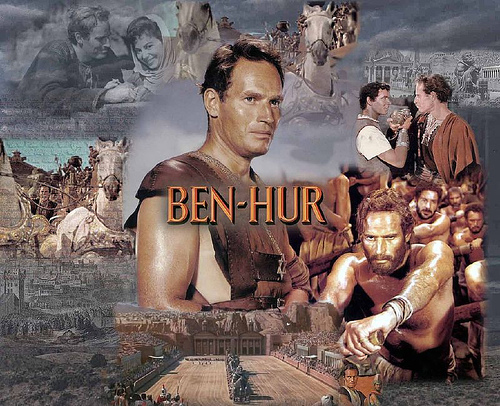
Ben-Hur, a film based around the New Testament starring Charlton Heston, wins eleven Academy Awards, including Best Picture.
Belgians in the Congo. In 1960, as the result of a widespread and increasingly radical pro-independence movement, the Congo achieved independence, becoming the Republic of Congo-Léopoldville under Patrice Lumumba and Joseph Kasa-Vubu. Poor relations between factions within the Congo, the continued involvement of Belgium in Congolese affairs, and intervention by major parties of the Cold War led to a five-year-long period of war and political instability, known as the Congo Crisis, from 1960 to 1965. This ended with the seizure of power by Joseph-Désiré Mobutu.
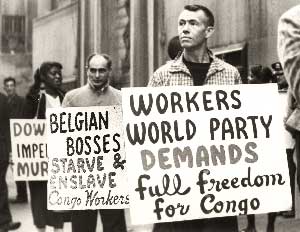
Belgians in the Congo: The Republic of the Congo (Leopoldville) was declared independent of Belgium on June 30, with Joseph Kasavubu as President and Patrice Lumumba as Prime Minister.
On April 17, 1961, 1400 Cuban exiles launched what became a botched invasion at the Bay of Pigs on the south coast of Cuba. In 1959, Fidel Castro came to power in an armed revolt that overthrew Cuban dictator Fulgencio Batista.
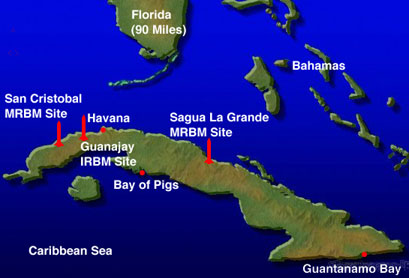
The Bay of Pigs Invasion fails, an attempt by United States-trained Cuban exiles to invade Cuba and overthrow Fidel Castro.
In this video, President John F. Kennedy speaks about the Bay of Pigs. His full speech (nearly 20 minutes) is available on Youtube.
On August 13, 1961, Berlin is separated into West Berlin and East Berlin, and from the rest of East Germany, when the Berlin Wall is erected to prevent citizens escaping to the West. I’ve written about the Berlin Wall before. You can read it HERE
Billy Joel included British Beatlemania in the 1962 segment of his song. Most references point to 1963 and 1964 when the craze really took off but it was 1962 that the Beatles changed drummers to replace Pete Best with Ringo Starr. At this time, the band to be really known as the Beatles was complete. The phenomenon known as Beatlemania originated in the United Kingdom, birthplace of the Beatles, when the band first realized enormous popularity there in 1963. Returning from Germany in 1962, the Beatles achieved a commercial breakthrough with their second UK single release, “Please Please Me” early in 1963, but gained “Superstar” status with the release of “She Loves You” later that year. There followed an almost non-stop series of concerts and tours, attended with feverish enthusiasm across the UK, for the whole of the following year.
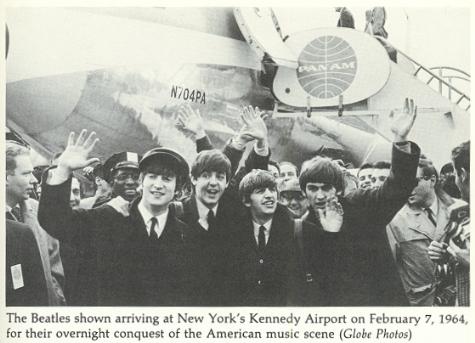
British Beatlemania: The Beatles, a British rock group, gain Ringo Starr as drummer and Brian Epstein as manager, and join the EMI’s Parlophone label. They soon become the world’s most famous rock band, with the word “Beatlemania” adopted by the press for their fans’ unprecedented enthusiasm. It also began the British Invasion in the United States.
With intense media interest in the Beatles during 1963, the year was also taken up with TV shows, press interviews and a weekly radio show. Despite these demands the band found time for many sessions in the recording studio, releasing two albums and four singles during the year. By the end of 1963, Beatlemania would begin to spread internationally. The single “I Want to Hold Your Hand” entered the US charts on 18 January 1964, selling one-and-a-half million copies in under three weeks, and the following month the Beatles made their first visit to America. The great interest in the Beatles brought about a major change in US attitudes to popular music and marked the start of the phenomenon known as the British Invasion. I truly don’t think we’ve seen anything like it since. I was a teenage girl in the late 70s and early 80s and we just didn’t have phenomena like this:
A British politician’s sex scandal was all the way at the top of British government in 1963. The Profumo affair originated with a brief sexual relationship in 1961 between John Profumo, the Secretary of State for War in Harold Macmillan’s government, and Christine Keeler, a 19-year-old would-be model. In March 1963, Profumo denied any impropriety in a personal statement to the House of Commons, but was forced to admit the truth a few weeks later. He resigned from the government and from Parliament. The repercussions of the affair severely damaged Macmillan’s self-confidence, and he resigned as prime minister on health grounds in October 1963. His Conservative Party was marked by the scandal, which may have contributed to its defeat by Labour in the 1964 general election.

British politician sex: The British Secretary of State for War, John Profumo, has a relationship with a showgirl, and then lies when questioned about it before the House of Commons. When the truth came out, it led to his own resignation and undermined the credibility of the Prime Minister.
Though approved by the FDA for contraceptive in 1960, it was 1965 in the height of the sexual revolution that widespread use of the birth control pill skyrocketed. By 1965, 6.5 million American women were on the pill making it the most popular form of birth control in the United States.
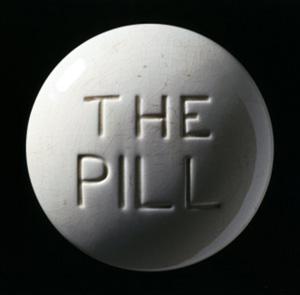
Birth control: In the early 1960s, oral contraceptives, popularly known as “the pill”, first go on the market and are extremely popular.
In 1977, Menachem Begin became Prime Minister of Isreal and it was between him and the President of Eqypt, Anwar El Sadat that the Camden David Accords were negotiated on September 17, 1978. One of the most famous events under President James Earl Carter.

Menachem Begin becomes Prime Minister of Israel in 1977 and negotiates the Camp David Accords with Egypt’s president in 1978.
Was Bernie Goetz a hero? Hero or not, he is the poster child for just about having enough with crime on the subway. Following an assault in 1981, Goetz was infuriated by the lack of prosecution of the three assailants. He decided to start carrying a gun for protection. In 1984, four teenagers approached Goetz again, but this time Goetz shot all four, permanently paralyzing one of them, Darrell Cabey. The case made him a folk hero to some New Yorkers who believed his actions were justified. In the criminal trial, Goetz was acquitted of attempted murder, but he was found guilty of illegal firearms possession. Later, the jury in a civil trial awarded Cabey millions in damages. Goetz then declared bankruptcy.
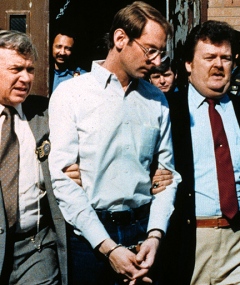
Bernie Goetz: On December 22, Goetz shot four young men who he said were threatening him on a New York City subway. Goetz was charged with attempted murder but was acquitted of the charges, though convicted of carrying an unlicensed gun.
Tune in tomorrow where my post will be brought to you by the letter C. Ugh! 10 of them.




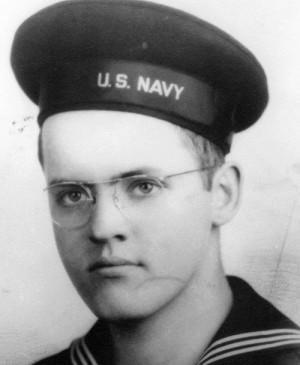 Check out my other blog
Check out my other blog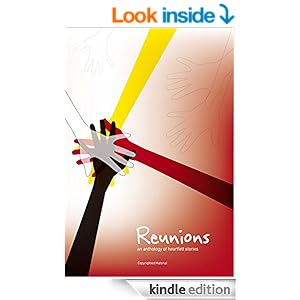 I'M PUBLISHED
I'M PUBLISHED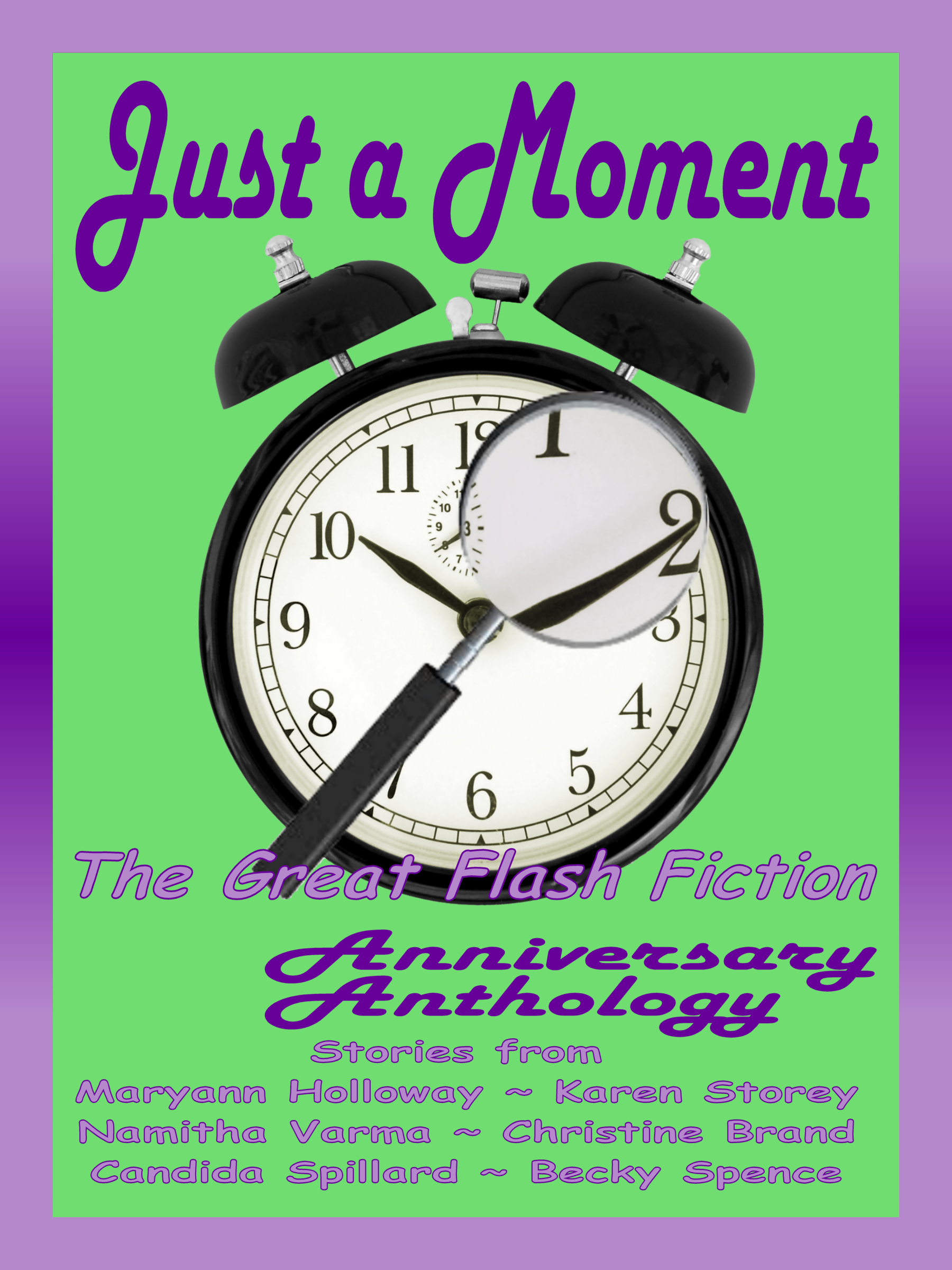 I'm Published Again
I'm Published Again


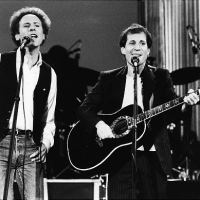

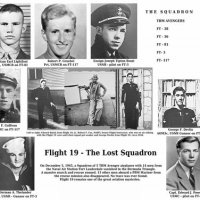
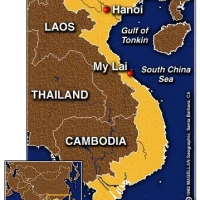


Wow. I feel like I have just relieved a huge part of my life. It does not seem that some of that stuff happened in 1956 and I remember it so well.
@msdeniseh553
Denise at My Life in Retirement Brussels, Belgium
LikeLike
I know. 1956 is before my time but when I read little bits of history that maybe I never heard before or just without much details, I realized we have a great big world and a lot of stuff good and bad happens every day. Thanks for reading.
LikeLike
You did an amazing job here and I agree about The Beatles. Brando was such a hot ticket back in the day…too bad he loved McDonald hamburgers so much. Vivien Leigh did not like him at all because Brando would play up the bad manners. My mom came over to Canada in 1956 and she said there were a bunch of Hungarian refugees on the ship. They were given wine and food but as soon as the ship went out to sea, they were on the edge of a hurricane so the waves were very tall and dangerous. My mom was not ill but all the Hungarians were very ill. I remember the peace built by Jimmy Carter between Sadat and Begin
LikeLike
I’ve never really paid attention to the words in that song before. That’s quite the history lesson there. 🙂
Cait @ Click’s Clan
LikeLike
Thanks for visiting. I’ll check your blog when I get home today.
LikeLike
Wow, that was quite a trip down memory lane! I enjoyed it all. I saw your last name and of course I had to check it out because I have the same last name.
LikeLike
When I saw your name in my comments list, I wondered too. It is my married name but my husband’s family is generally from the Northeast, primarily New Jersey
LikeLike
This is a nice summary of my life in the letter B. It’s only been in the last decade or so that I finally saw Ben Hur and Bridge on the River Kwai. Such great films.
Arlee Bird
Tossing It Out
LikeLike
Yes they rarely hit the mark like those anymore.
LikeLike
Well, I feel smarter. 😉
Perspectives at Life & Faith in Caneyhead
LikeLike
Thanks for reading.
LikeLike
I’m a big Beatles fan, so “British Beatlemania” is one of my favorite parts of this song.
Sandra Ulbrich Almazan, Science Fiction/Fantasy Author
LikeLike